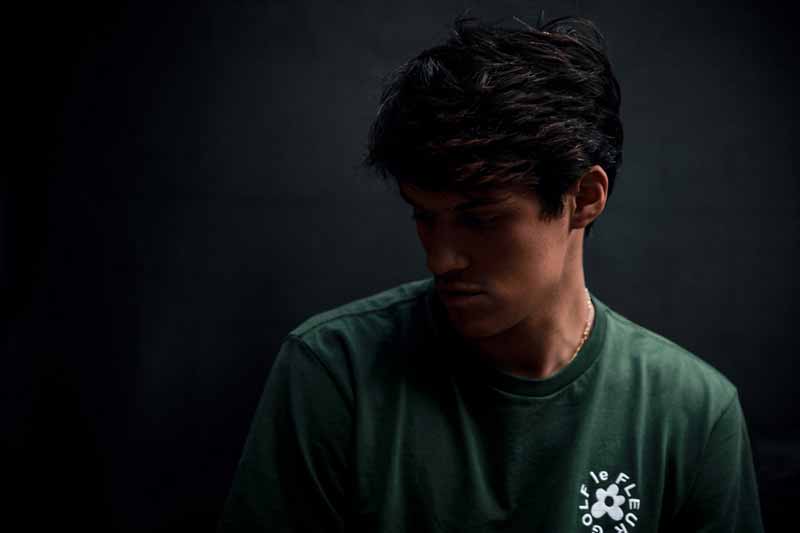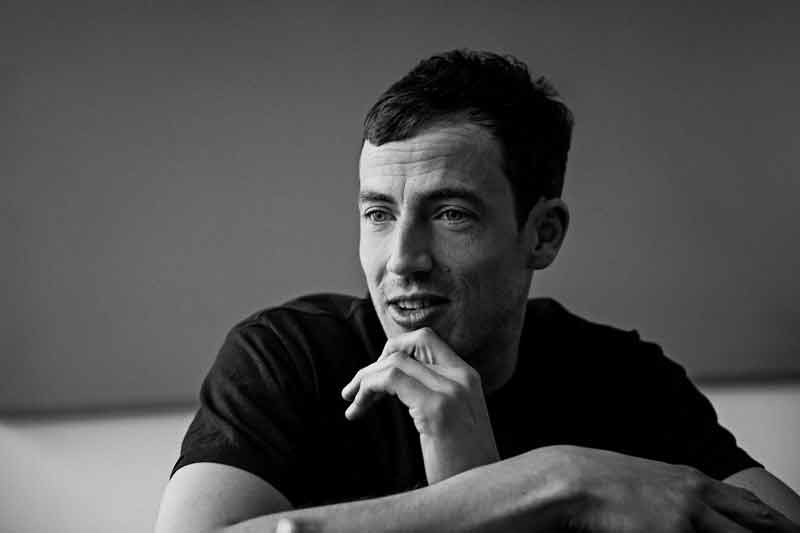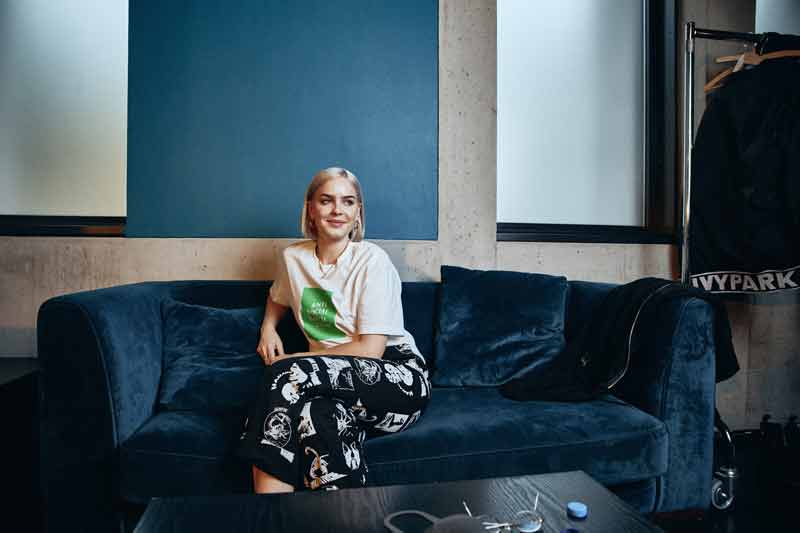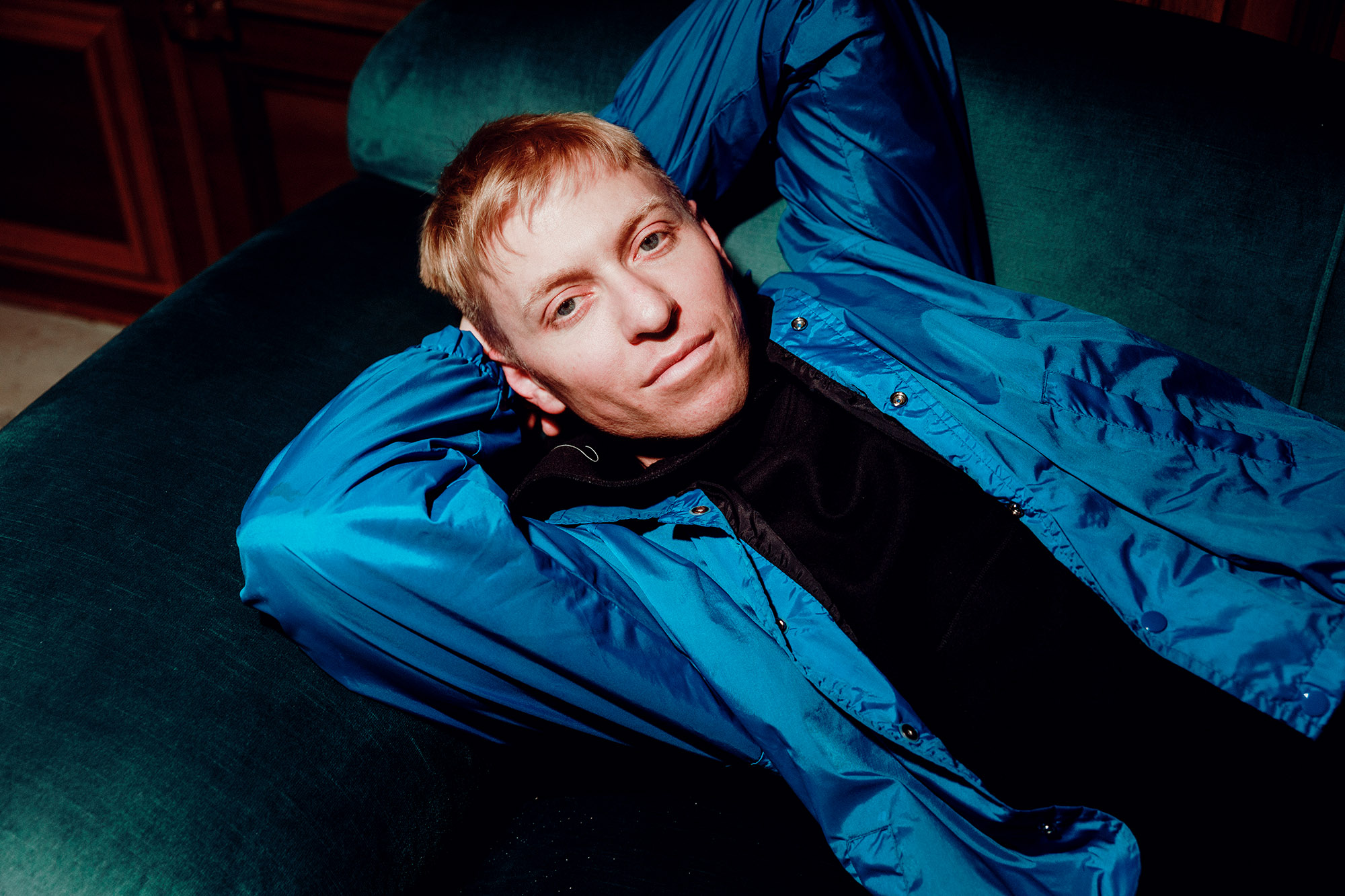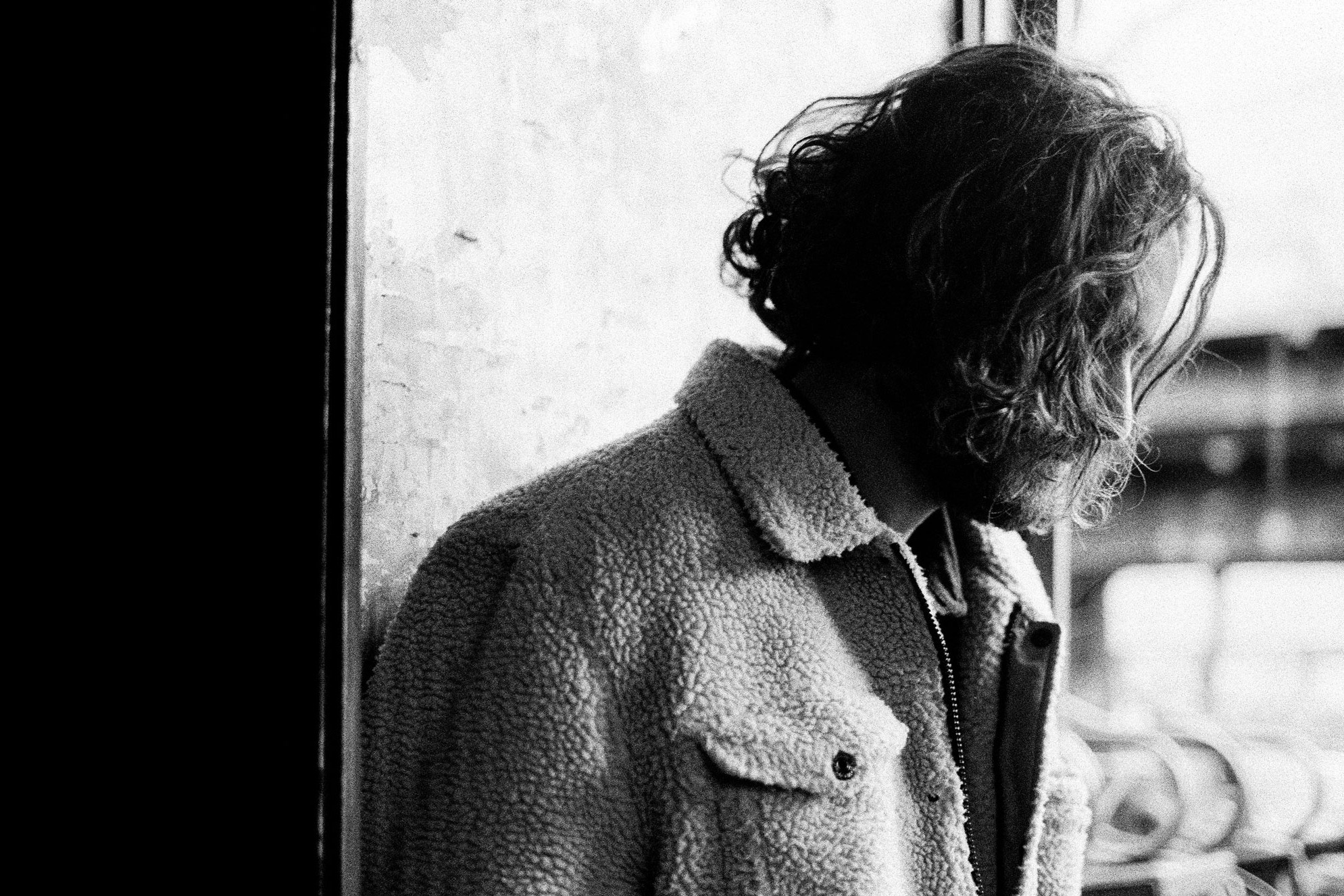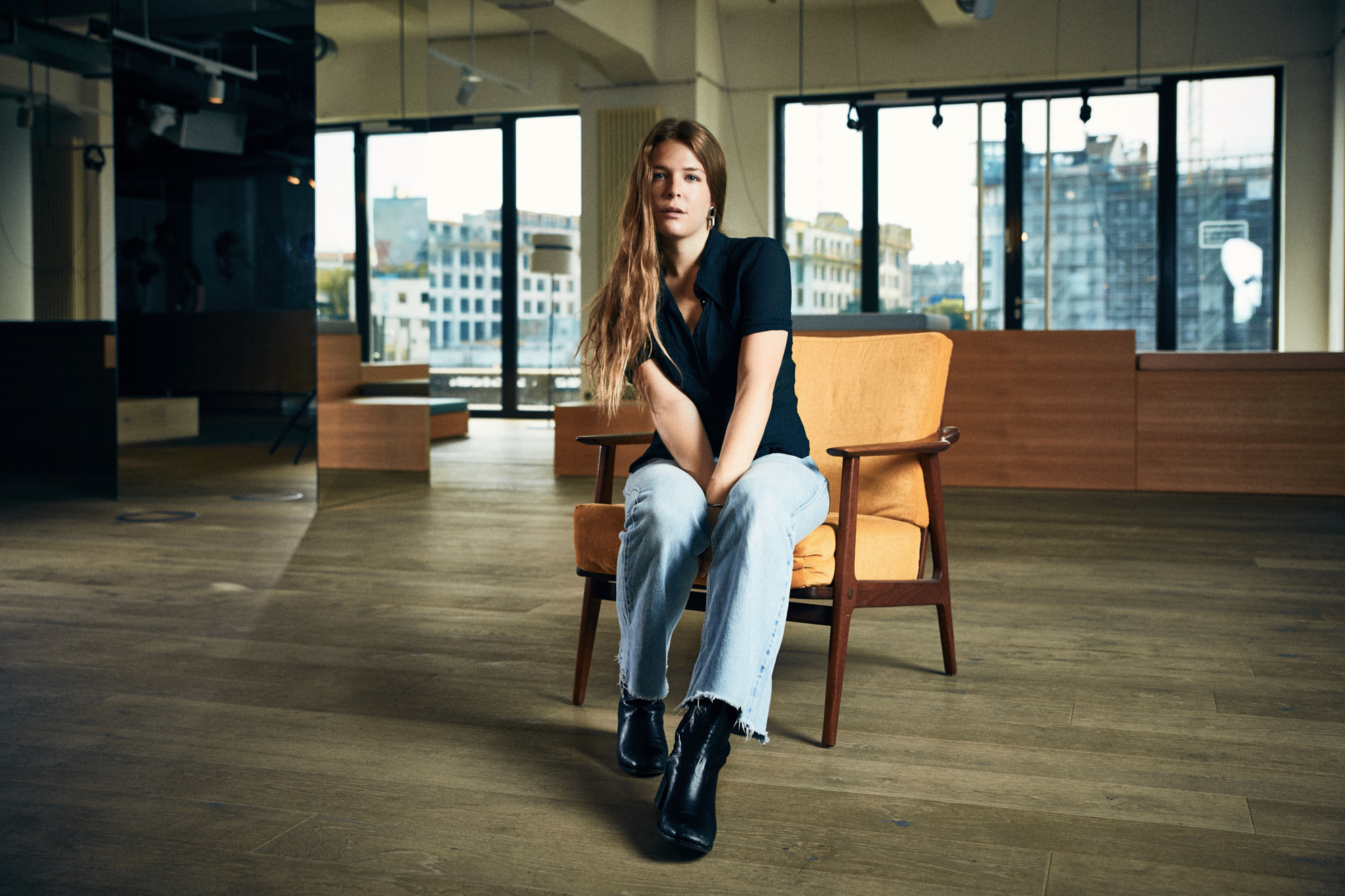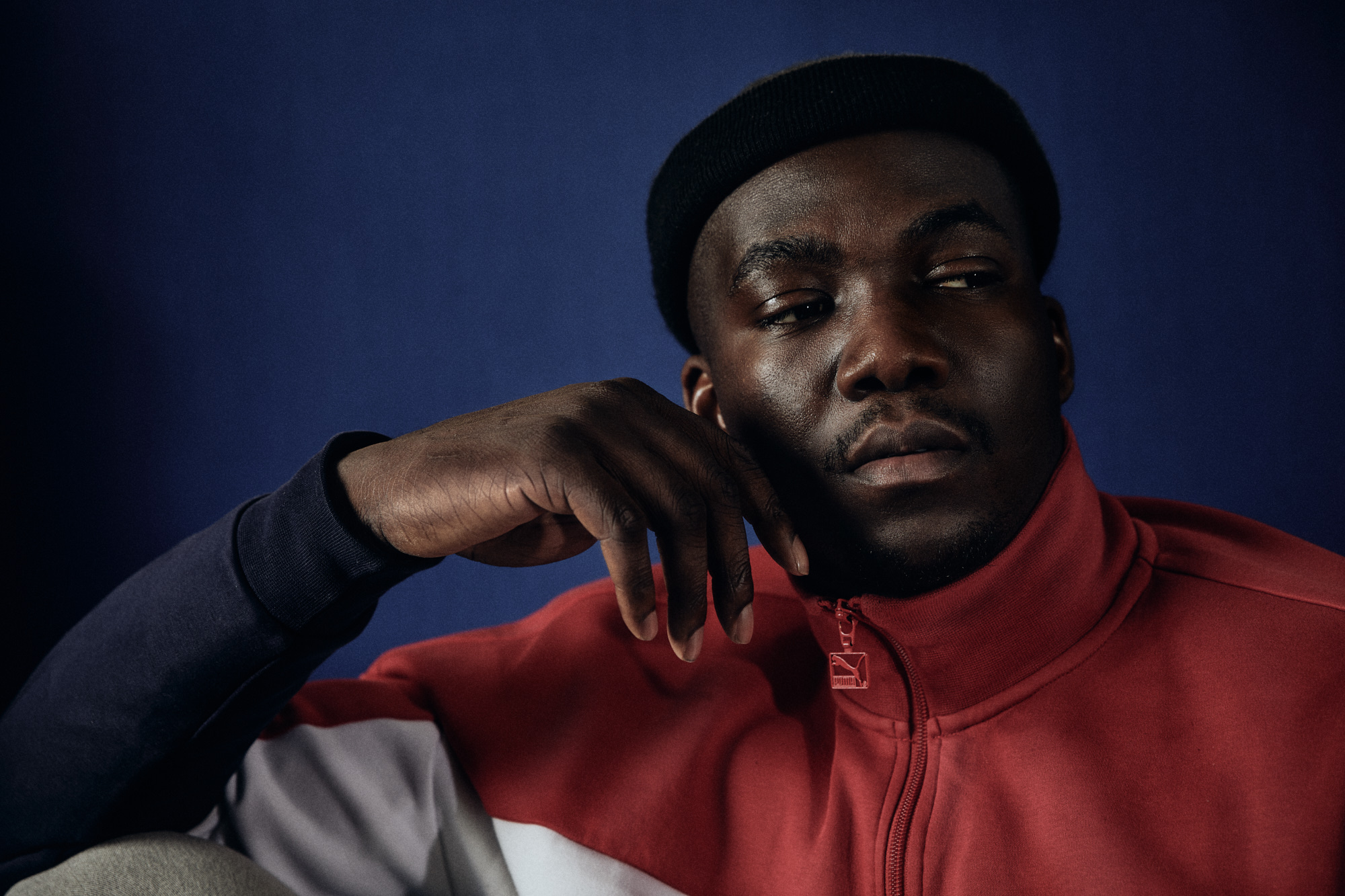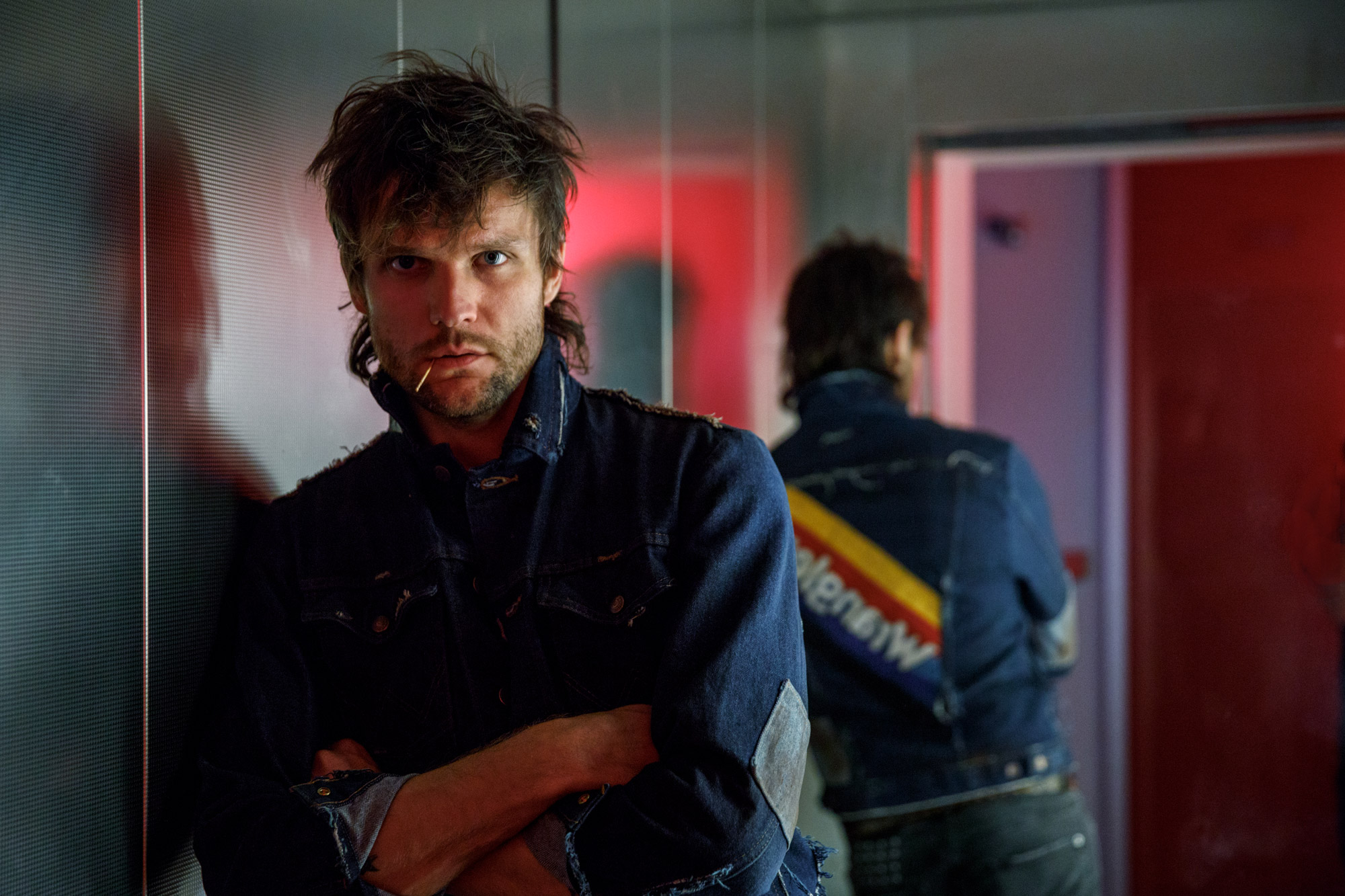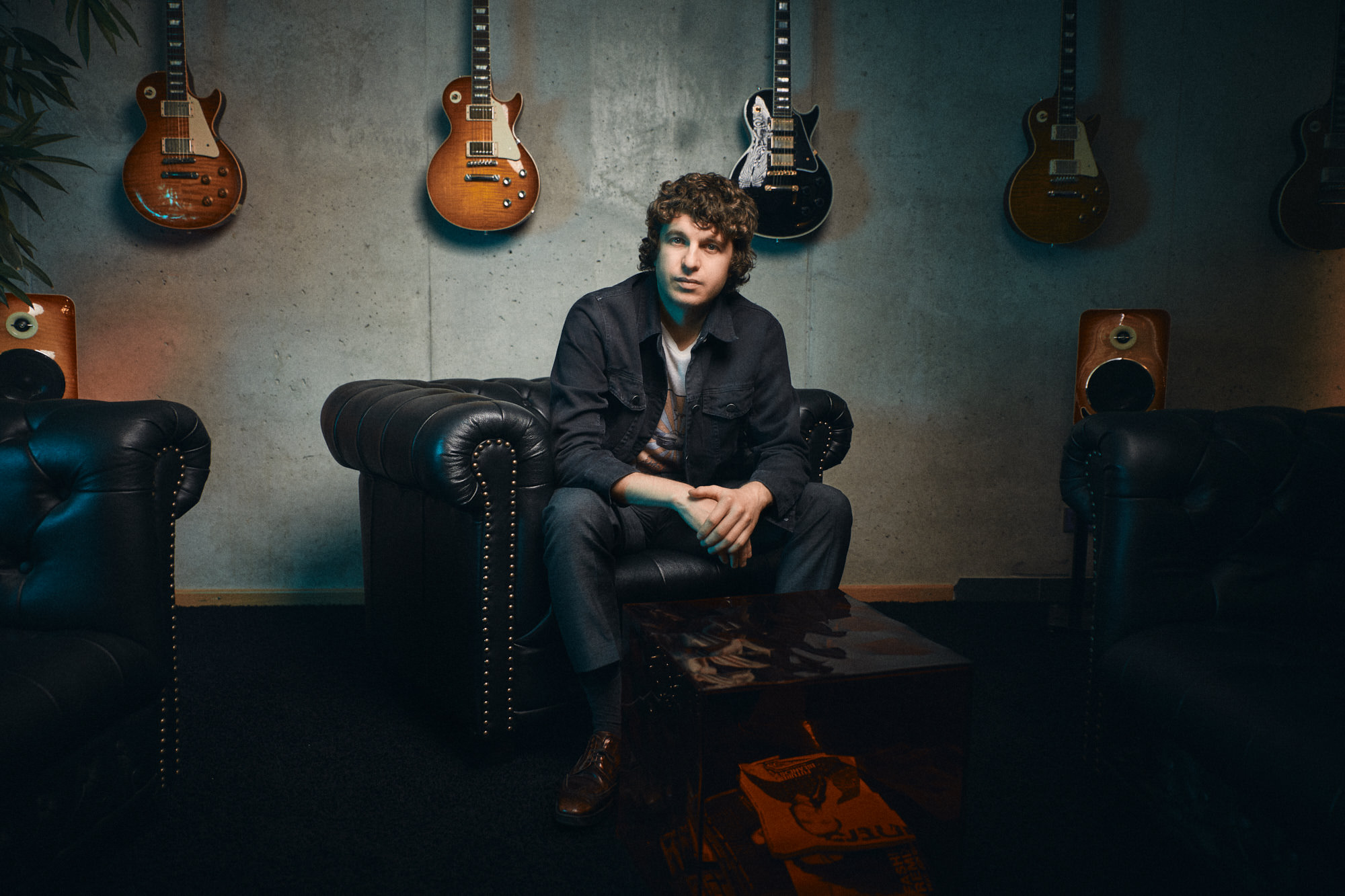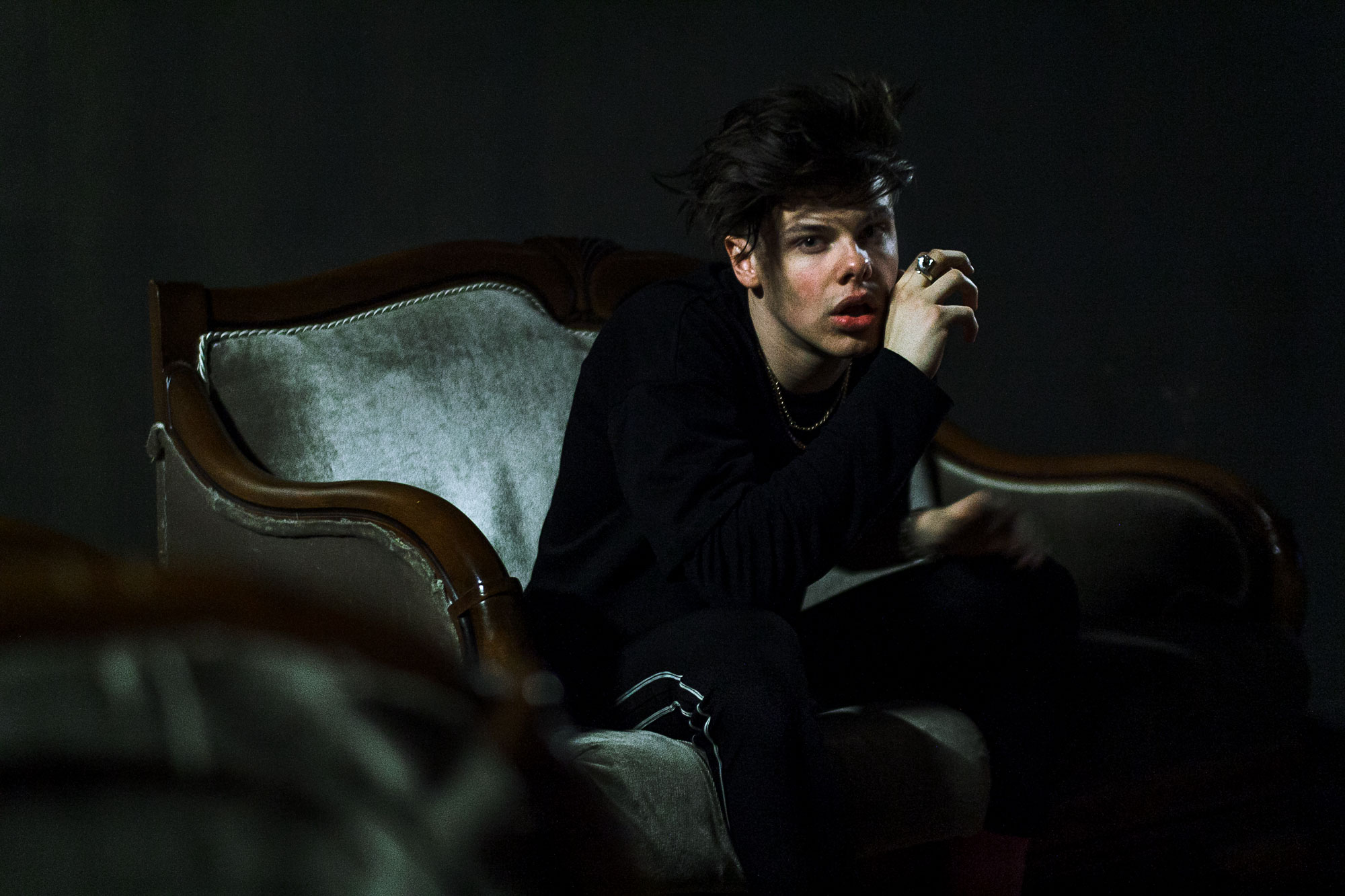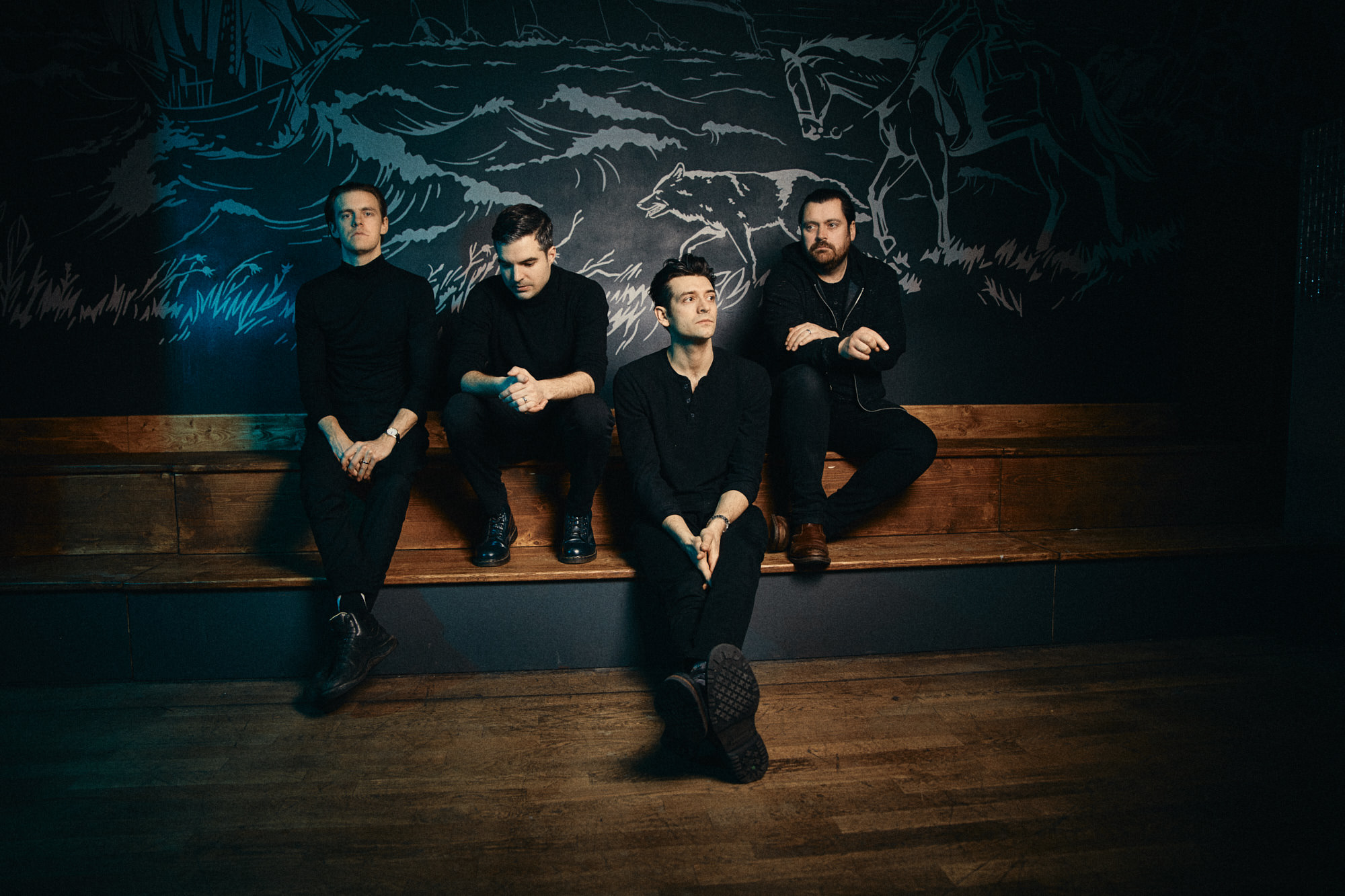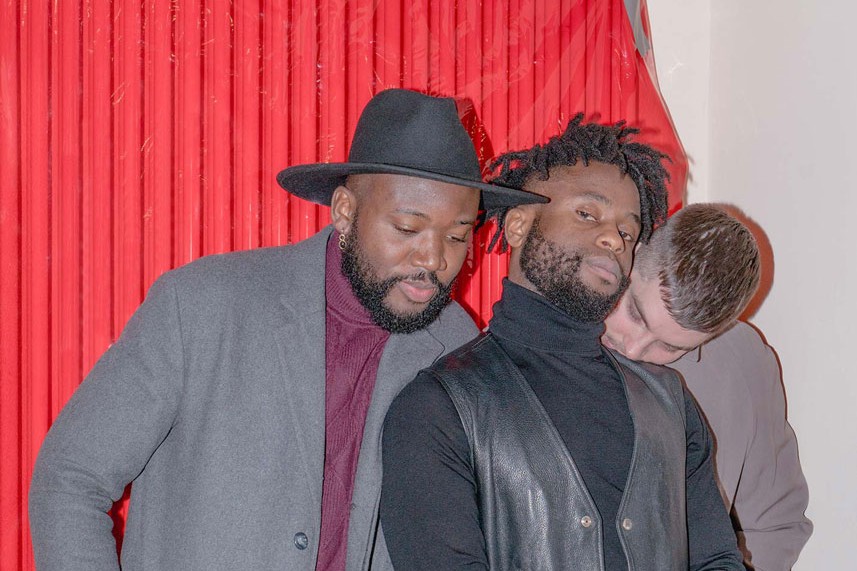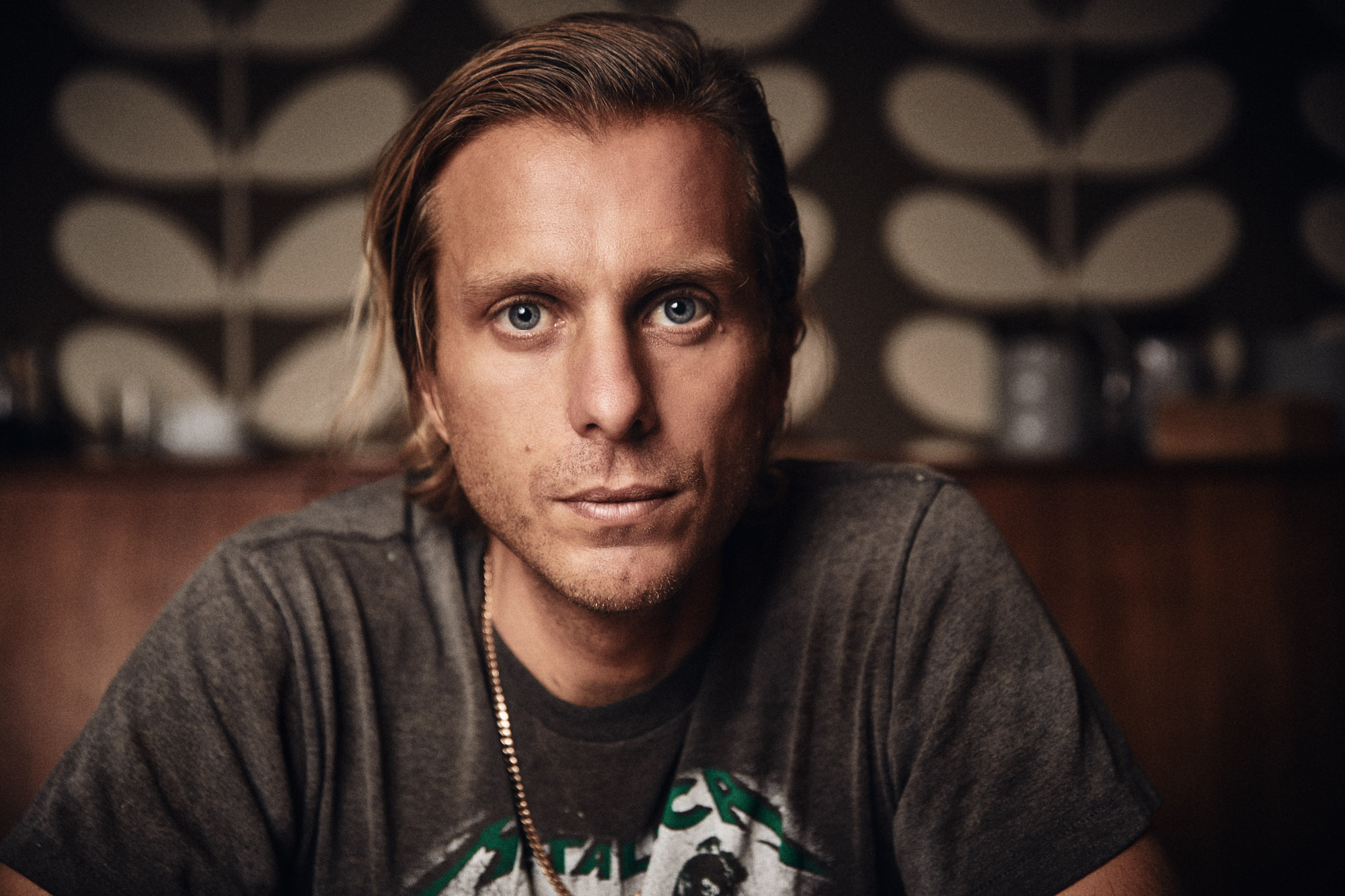Interview — Red Music
Life, turned upside-down
With »Right Place, Wrong Time« Red Music presents his hip-hop debut EP to the world. We talked with the 27-year-old multi-talent from Memphis, Tennessee about hope, the construct of masculinity, and music as a superpower. And we found out why he chose Berlin of all the places in the world to start with southern hip-hop rap.
6. Mai 2021 — Interview & text: Paul Sundheim, Photography: Nis Alps, Editing: Jonas Meyer
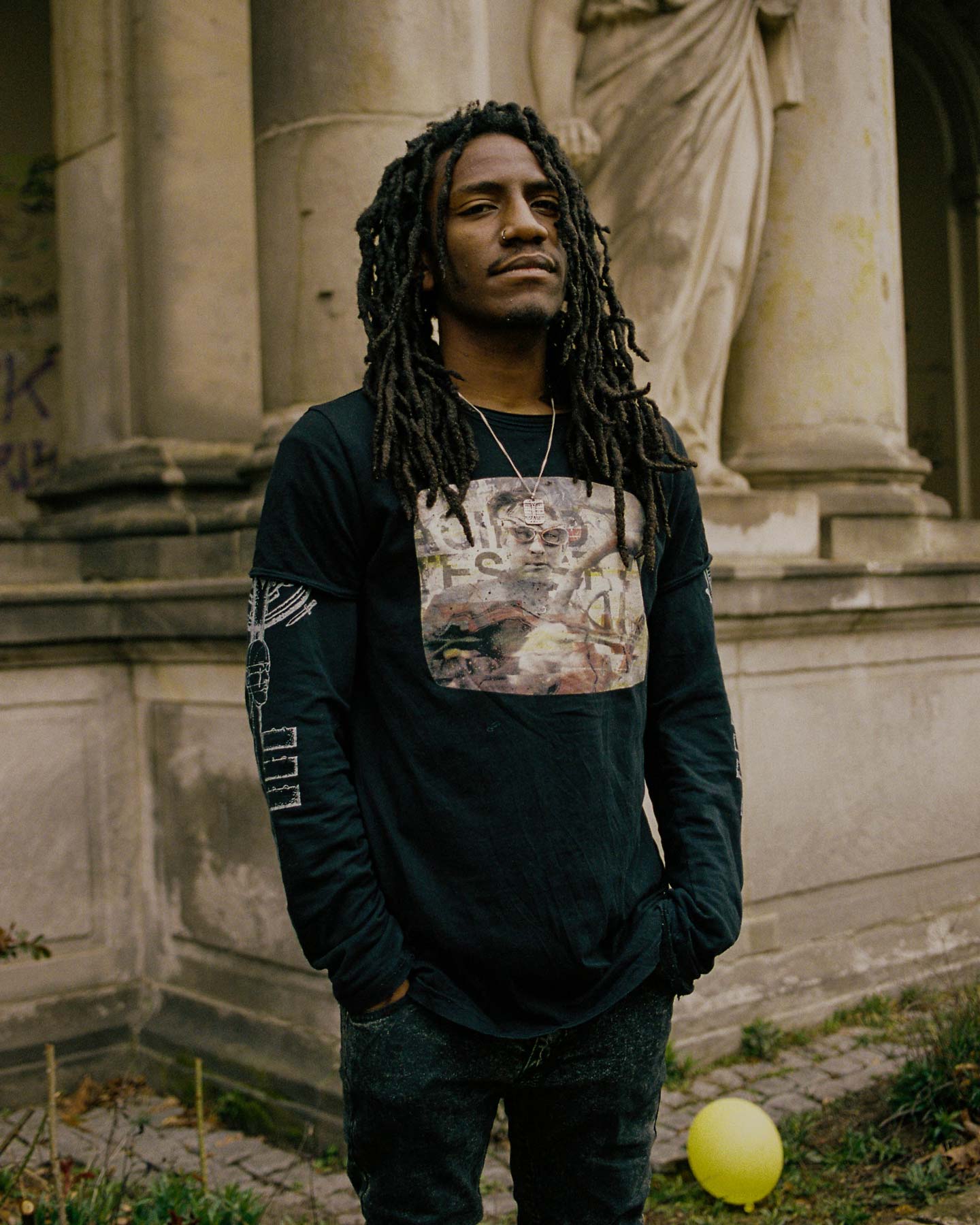

Memphis, Tel Aviv, Berlin — if you’ve made it to all three of them in the course of your life, at least as a tourist, you can consider yourself really lucky. And when you had the chance to actually live there for quite a while, you can feel even luckier. Not necessarily because these places are among the most characteristic and exciting in the world. But because the differences between the cultures couldn’t be bigger — and you yourself right in the middle of it, absorbing everything like a sponge.
One of the few people who could absorb the way of life in Tennessee, Israel, and Germany is Bishop Bledsoe, better known as Red Music. The 27-year-old was born and raised in Memphis, where — already at a young age — he was able to breathe in the spirit of artists like B. B. King, Aretha Franklin, Muddy Waters, and, of course, His Royal Highness Elvis Presley. At the age of 12, Bishop started playing the guitar, listened to Nirvana and Red Hot Chili Peppers, and witnessed how trap music became more and more influential in the Southern States, especially in Memphis, Tennessee; a development that also influenced his own music, in which he more and more tried to mix old and new musical styles.
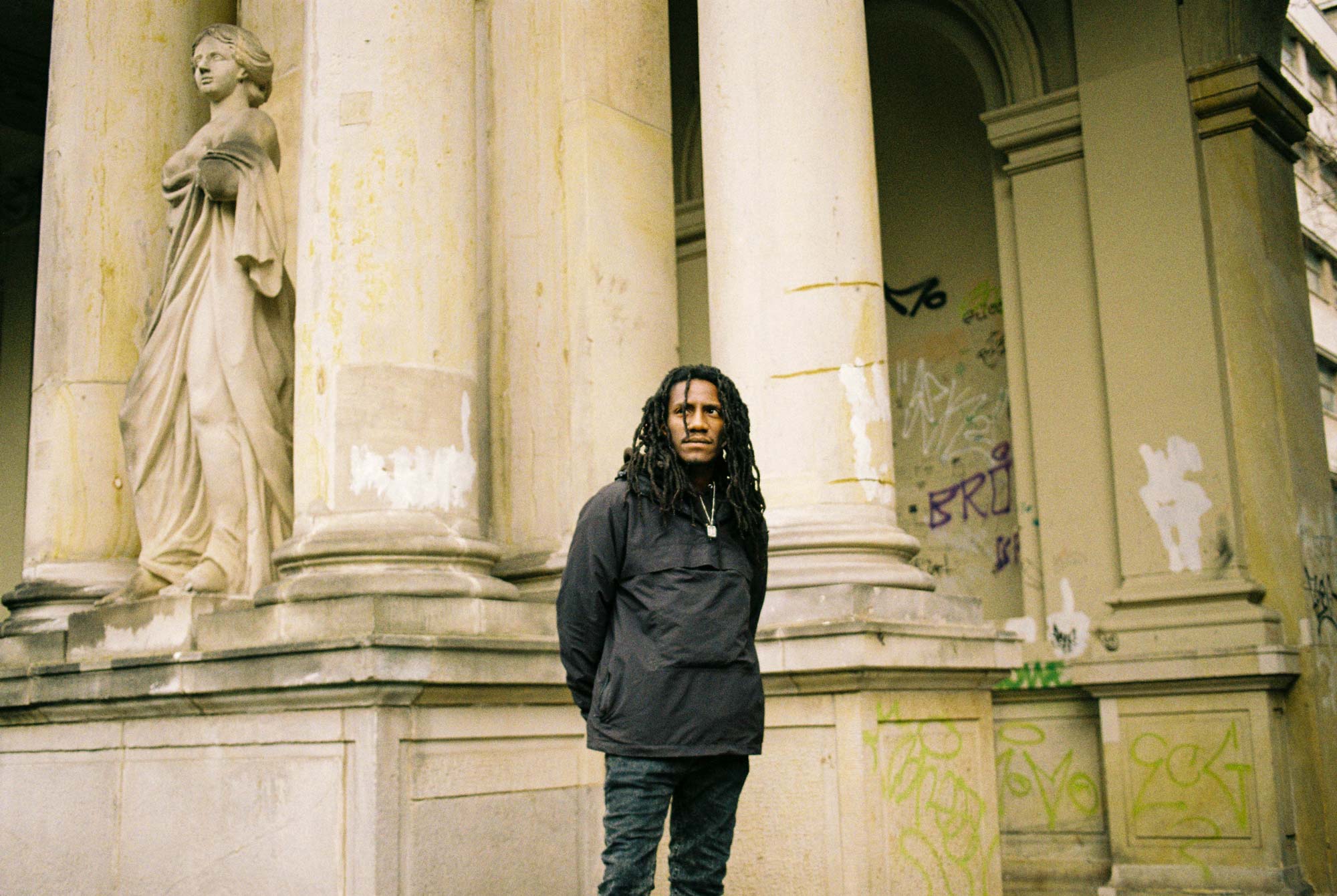
After he turned 17, Bishop decided to leave the parental nest and travel the world. When his trip took him to Tel Aviv, he decided to stay. From today’s perspective, this was the time when his artist name, Red Music, was first termed. In 2012 he started playing his first gigs at popular beach bars and further developed his music by adding Middle Eastern sounds and frequencies to his musical mélange of southern soul, blues, and hip-hop.
Due to the enduring conflict and warlike state in the Israeli-Palestinian region, Bishop decided to move to Berlin in 2016. Here, in the middle of wet-cold winters and okay-ish summers, the multi-talented producer, DJ, rapper, guitarist, singer, and songwriter added his music to Berlin’s cultural scene, settled down (for now), became a father, and worked on his hip-hop debut EP called “Right Place, Wrong Time.”
In the idyllic Heinrich von Kleist Park in Berlin’s district Schöneberg, editor Paul Sundheim and photographer Nis Alps met Bishop Bledsoe aka Red Music for an extensive and very personal interview.
»I really realized the weight of the phrase: The grass is always greener on the other side.«
Paul Sundheim:
As you were born in Detroit, then lived in Memphis as well as Tel Aviv and now in Berlin, you’ve spent your life in some of the most vibrant and politically interesting places in the world. How did the various places you’ve lived at changed the way you conceive the world and different cultures?
Red Music:
It changed me in a lot of ways. The social and political system in the United States is completely different from the Israeli system — and the Israeli one is completely different from the German system. I could go on and on about this, but what I’ll say to generalize it is that I really realized the weight of the phrase: “The grass is always greener on the other side”. Because one day I’d go to Germany and be like “I miss America because of this and that,” then I’d go to America and be like “I miss Israel because of this and that” and vice versa.
It really depends on the circumstances and time of my life. Different people have different perceptions of what it is on the other side, and when you get there, you realize the glitter is not always gold. Everywhere you go they have that nationalistic pride, especially in America. People be like “We’re the best of the best.” Maybe that’s because we Americans live in a bubble, and since to the east and the west there is an ocean, you’re basically on an island, so you’re very limited to the world’s point of view.
And to your question again, I would say both cultures shaped me. Germany, in a more subtle way, taught me about patience and rational thinking, as where I come from, those are places of irrational thinking. Memphis and Israel were like screaming in your face all the time, which I’m used to, but when I heard how Germans talked to each other, I was like: “That actually makes more sense.” So I took what I could from all three of those and kind of formed it into my own thing.

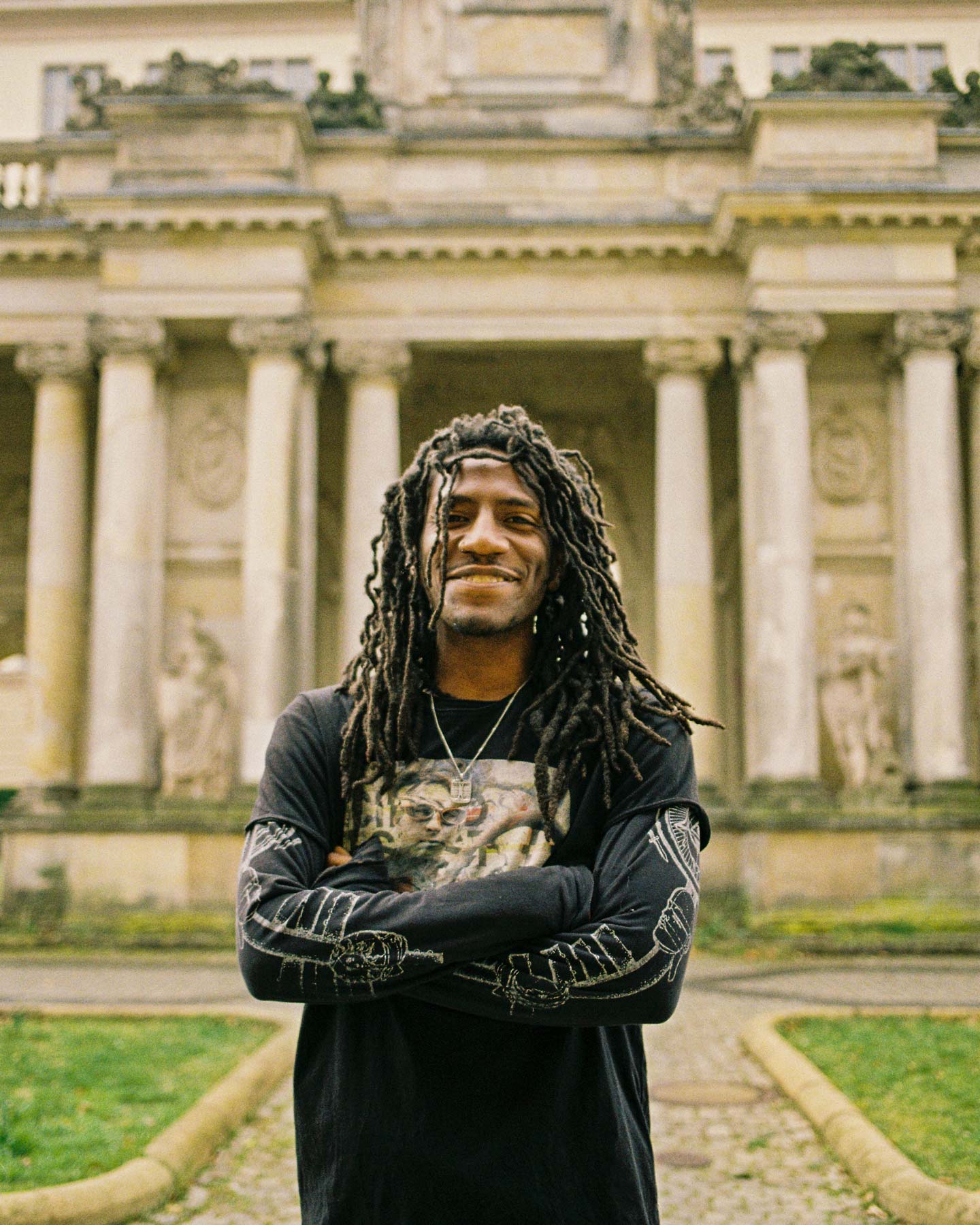
»Sometimes I feel like snitchin’ on myself, revealing my deepest, darkest desires that I wouldn’t necessarily put out in the actual world.«
Paul Sundheim:
How do you use those influences and put them into your music?
Red Music:
My music doesn’t really speak to those things, it’s more like an alter ego of mine. It’s about the things I’d like to do but never dare to do. It’s more like that superhero version of me: I can say what I wanna say, I can be who I wanna be, without being afraid of it. Sometimes when I’m rappin’ and stuff like that and I have some lyrics and I’m listening to them I feel like I’m snitchin’ on myself, revealing my deepest, darkest desires that I wouldn’t necessarily put out in the actual world. For example, I said Germany has made me more logical, more rational thinking. But most of the time, when I’m rapping, it isn’t about rationality at all. I just want to do the complete opposite. I want to not be afraid of the consequences.
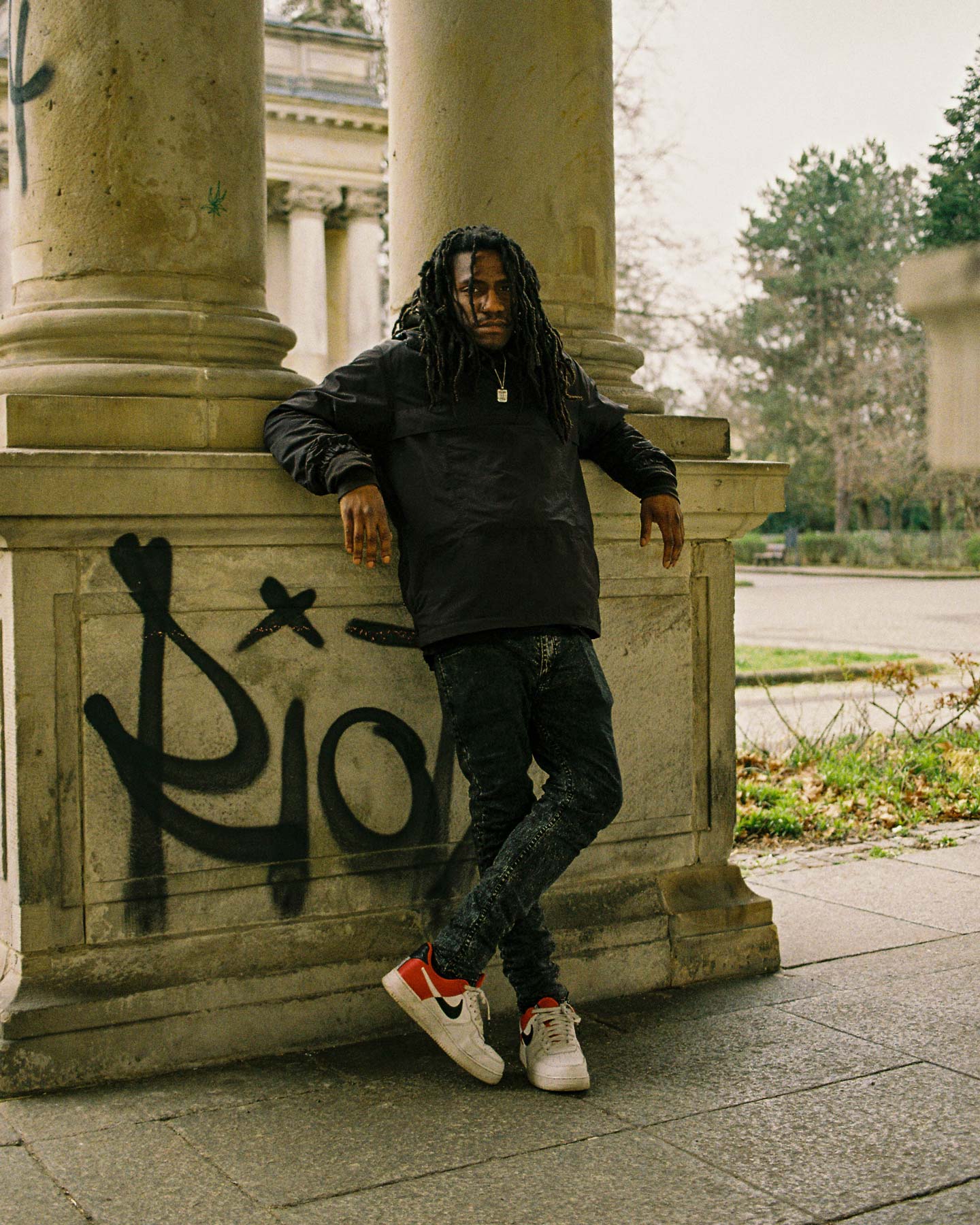
»It was just annoying to see people take your culture and then sell it back to you as new.«
Paul Sundheim:
It is difficult — and simply doesn’t do your art justice — to classify it just as hip-hop, neo-soul, or something else. How did you manage to create your own unique style of music? And what are the genres that influenced and inspired you?
Red Music:
That also has to do with me traveling a lot. I grew up during the time of Three 6 Mafia and the beginning of trap music. That heavily influenced me, as well as my parents’ music. My dad is from the 80s in Detroit, so he showed me the techno scene. My mom and my grandma would always play soul, RnB, and blues — the blues comes from Memphis, by the way. Elvis Presley is from Memphis as well; his birthday is on the same day as mine. Funny, right?
So, when I left, it was during that time electronic music started to get big in the States, so I immersed myself into Goa, psytrance, and a lot of random stuff — things hood niggas in Memphis would never listen to. I was like: How can I mix this gangsta shit with this other stuff?
And that, honestly, took me a long time. If you listen to my old beats, you’ll know what I’m talking about. I produced stuff you would never believe I did. And I was going to stay like that. I was going to stay being a DJ and a producer and doing all that electronic shit until I came to Berlin — and met all those German kids listening to trap music and be like: “Oh Digga, das ist so geil!” And I thought: “My nigga, I did that years ago, why are you showing me this?”
I had these kids coming up to me, asking “Yo, can you write me this bar?”, “Can you write me this and that?” So, I did it and started ghostwriting. I produced and ghostwrited for a few people until one day: I was in the studio and they asked me to help them because they didn’t come up with the hook. So I wrote one and they asked me to record it. I did that — and they said: “That’s it! You gotta start rappin’ now!”
I think, in the end, I eventually did it because it was just annoying to see people taking your culture and then selling it back to you as something new. So, I was like: “Fuck it! I guess I gotta serve up the plate.”
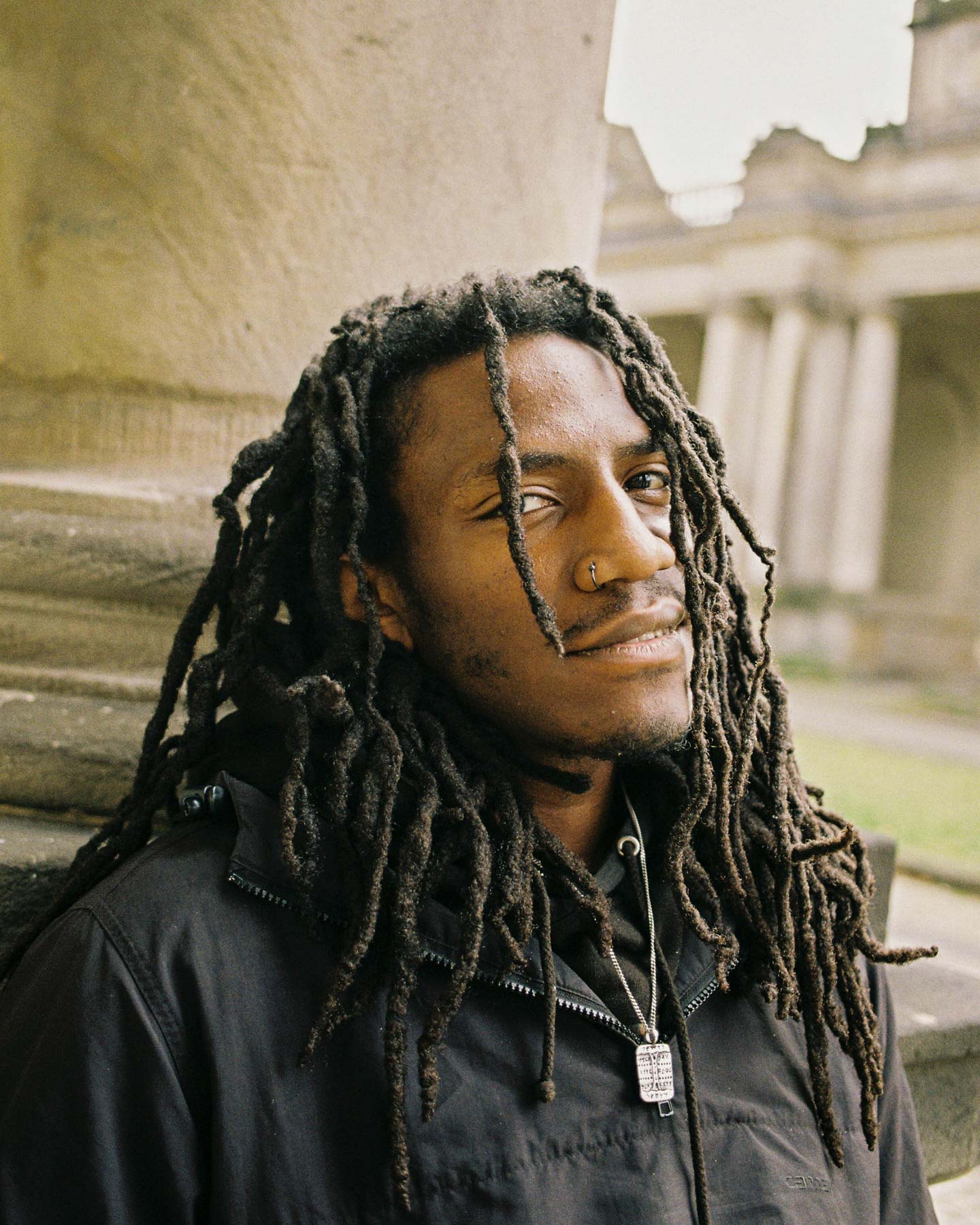
»I had no other choice than to prove the others and especially myself.«
Paul Sundheim:
That’s big news! So, you could basically say that Berlin has made you start rapping?
Red Music:
Yes, basically. But in a weird way! I mean: Why should you choose Berlin of all the places in the world to start with southern hip-hop rap, you know? It was just because I felt this push like I had no other choice than to prove the others and especially myself.
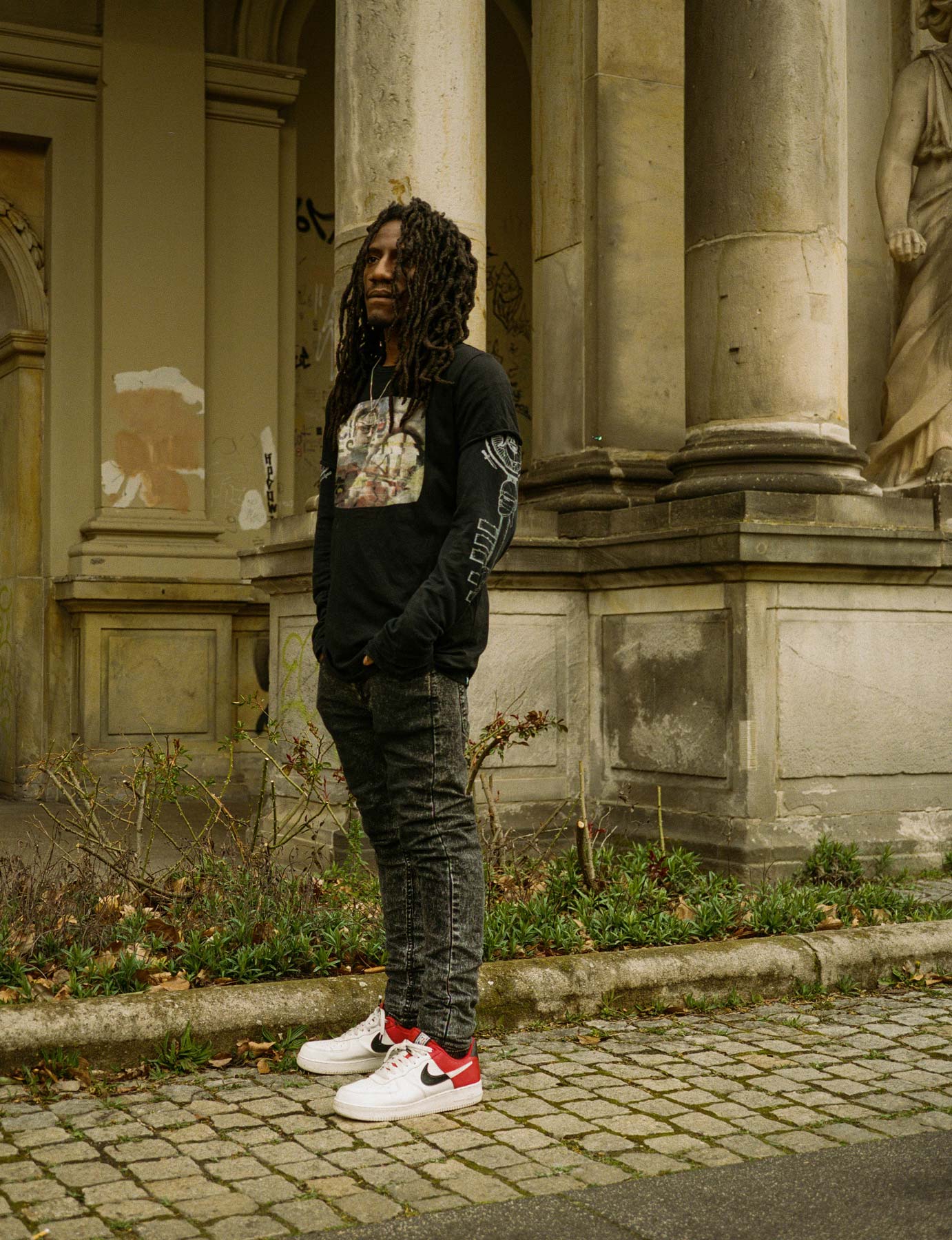
»More money, more problems.«
Paul Sundheim:
You do not only rap, play the guitar, and sing. You are also a producer and DJ. How important is it to you to be and remain self-made as an artist?
Red Music:
It’s the most important! You know how they say, “more money, more problems,” right? For example: If we were to buy this right now (Bishop is pointing at the antique buildings surrounding us), this massive building right here, let’s say we’d have like twenty-million dollars and we’d buy this thing. The next year the government would request money for taxes. So, as soon as we’d buy it, we’d not only have to maintain that money, we’d need to make even more money, and maybe inflation would go up, so you’d have more and more issues.
And in the same lie, the more people I put into my music, the more producers, the more mixers, the more masters, the more individuals I involve in a project, the more I have to maintain, the more it’s likely to have wholes in that shit. That, by the way, happened numerous times. I worked with someone and we were so hyped about a song, and then something happened, and it didn’t even have to be them, it could be the circumstances like their mom got sick, or the label said that they couldn’t do it, or some shit. But you put all your time into it, and time is the only currency you can’t get back. Also, you have that finished song that you put all your passion into but can’t use it.
I’ve just been disappointed too many times, so I was like: “Fuck it! I’m a producer, I’m a rapper, I guess I can sing if I want to, I can kind of mix, I know a good master, I do my own cover art, I can do my own videos, so I’ll guess I’ll do it.”
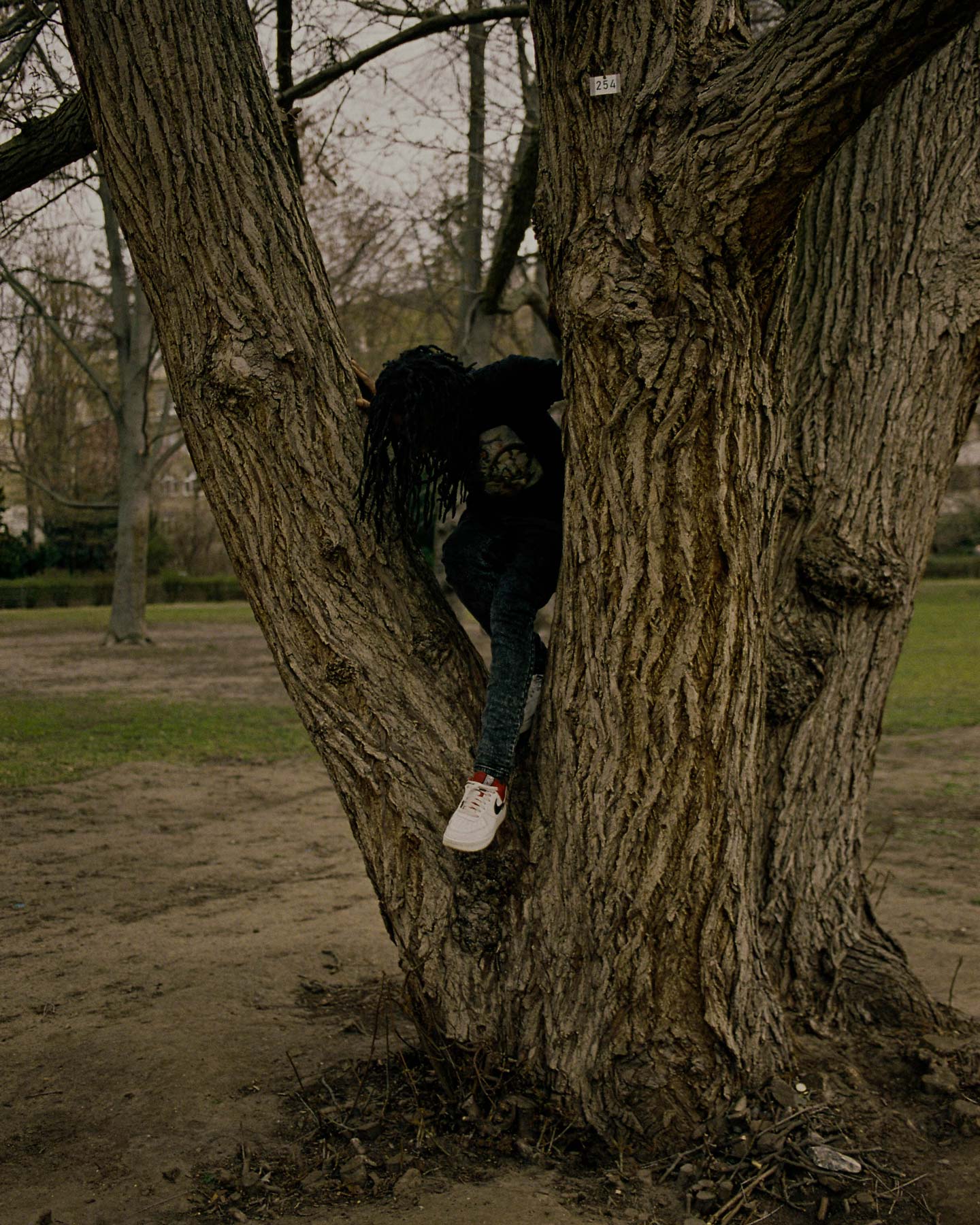
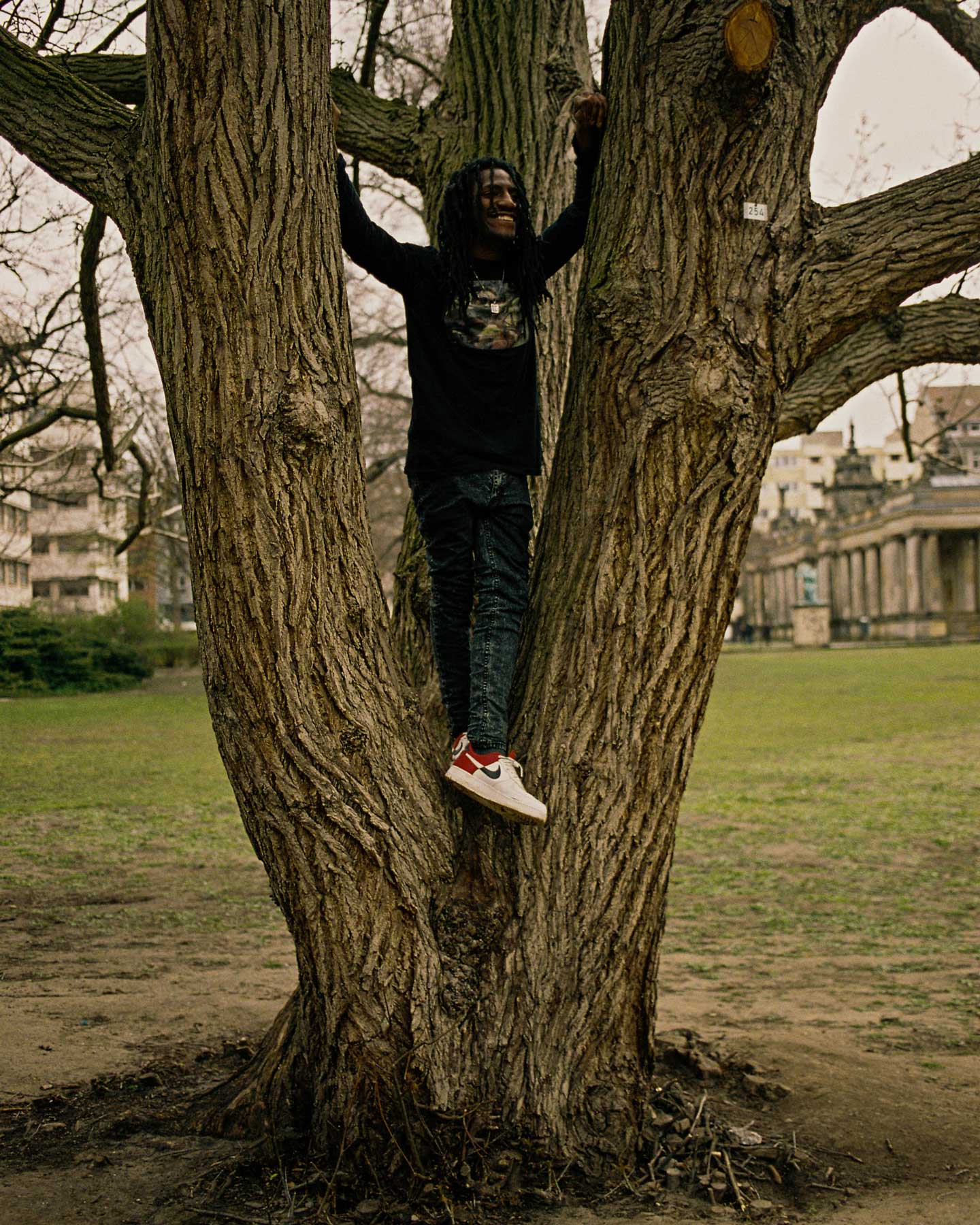
»I just compensate for what I’m going through in life — a lot of times, I noticed.«
Paul Sundheim:
As you do nearly everything yourself, now the question comes up where all this starts. Is it with the beat, the lyrics, the instrument? Can you lead me through the process of creating a song?
Red Music:
It’s different ways. Sometimes I’m just randomly walking and having a thought like “That could be dope,” or I hear a beat and be like “This is great.” Or I just compensate for what I’m going through in life — a lot of times, I noticed. It comes out subconsciously. Sometimes I record a song and I listen to it a month later, wondering: Wow, I was really talking about this certain aspect of my life, but I didn’t realize it during that time, and just wrote it because it sounded nice.
So, yeah, It’s kind of that unconscious-conscious thing. I think there’s not a single song I released where I’m not talkin’ about a specific topic. However, I still try to make it that my lyrics aren’t so specific that you can follow them like a story — because I don’t want to just give away my whole autobiography like that. You still wanna have some Jesus parables, you know?

»People were so open here that it made me feel weird about not being open.«
Paul Sundheim:
Now your way has brought you to Berlin. Many Americans have told me that, from their perspectives, you have to differentiate: There is Germany, and there is Berlin. What exactly has made you come here?
Red Music:
Yeah, there is Germany, and there is Berlin, one hundred percent! What brought me here: I was leaving Israel because of the permanent war situation, so I took a chance in Germany. Long story short: I met a girl, fell in love, we got a kid together, and I ended up staying here. I just remember that, when I got here, it was fucking snowing, it was like 2015 or something like that and it was just so raw, so gross, so free, so naked, I’ve never seen that before — but I loved it. I mean, I’ve never been to a place where you can go to sex parties or to a club at three in the morning and then leave two days later. That was totally new and different for me.
Another example: When you go on a date in America or anywhere else, there is kind of that ritual that you have coffee or dinner together, then maybe text two days later and this whole thing, you know? When I got to Berlin, it was like: “Yo, what’s up? Let’s talk! Let’s be homies! Let’s smoke! Let’s get lit!” I felt like the barriers I’ve built over my whole life, thinking people won’t accept me, or being like they will think I’m weird, Berlin knocked that all down. People were so open here that it made me feel weird about not being open. Berlin was like pure chaos and I loved that pure chaos surrounding the city, I bathed in that chaos for the longest time until I had my son. But then I suddenly felt that I have to snap out of this shit. It was the perfect time to do it, I wilded out for like a year or two and then had my kid — and calmed down a little bit.
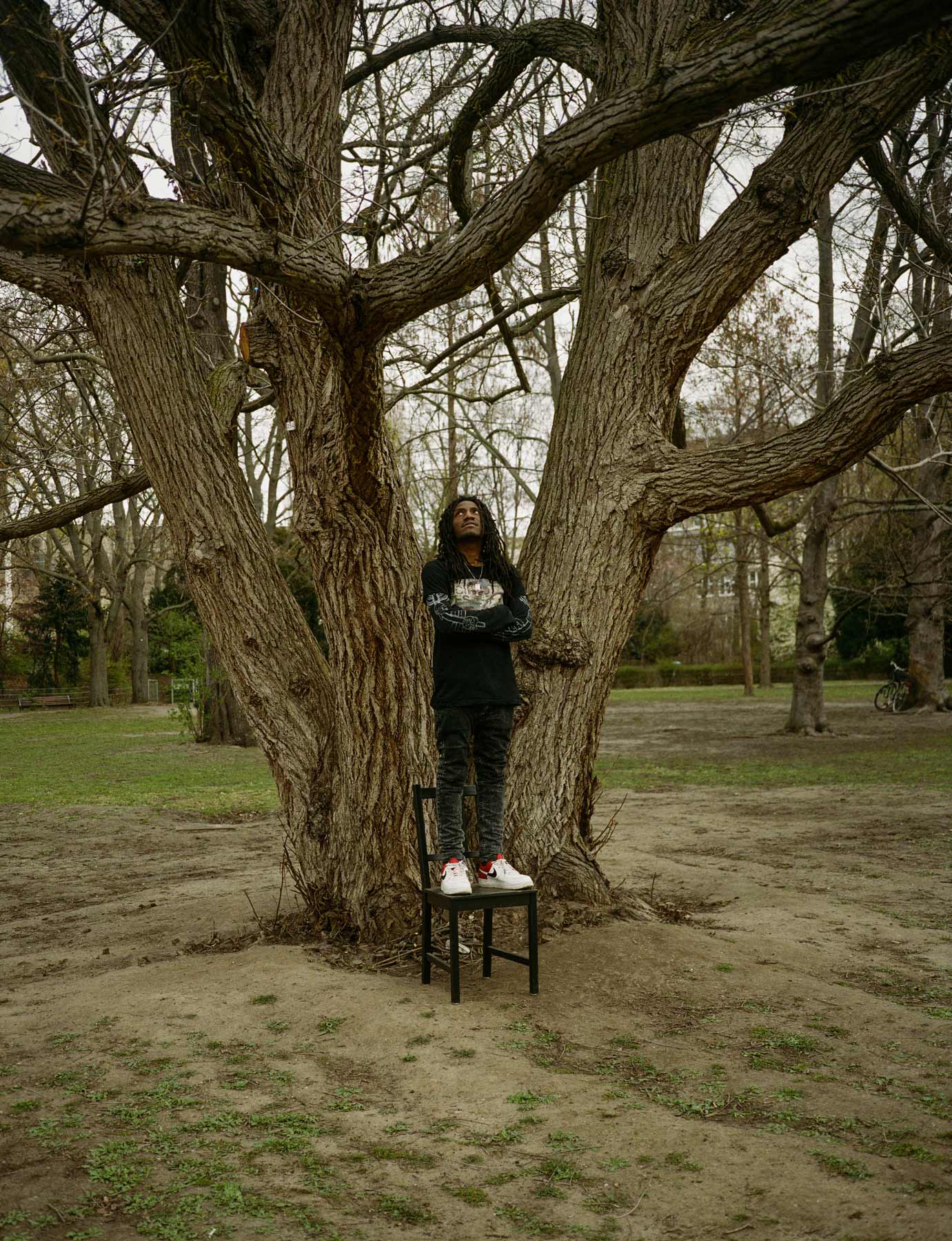
»I don’t want my kid to be in a bubble in Schöneberg, that’s simply not the world.«
Paul Sundheim:
But is Berlin also a good place for raising a child?
Red Music:
Yeah, good question. That’s the problem. Now I ask myself: Do I still wanna stay in Berlin? Because this place is pretty nuts. I mean, I live in Schöneberg, so…
Paul Sundheim:
I see, I mean it really depends on the part of Berlin you’re living in and the bubble you’re in.
Red Music:
Yeah, exactly, and I don’t want my kid to be in a bubble in Schöneberg, that’s simply not the world. The world is a lot different!
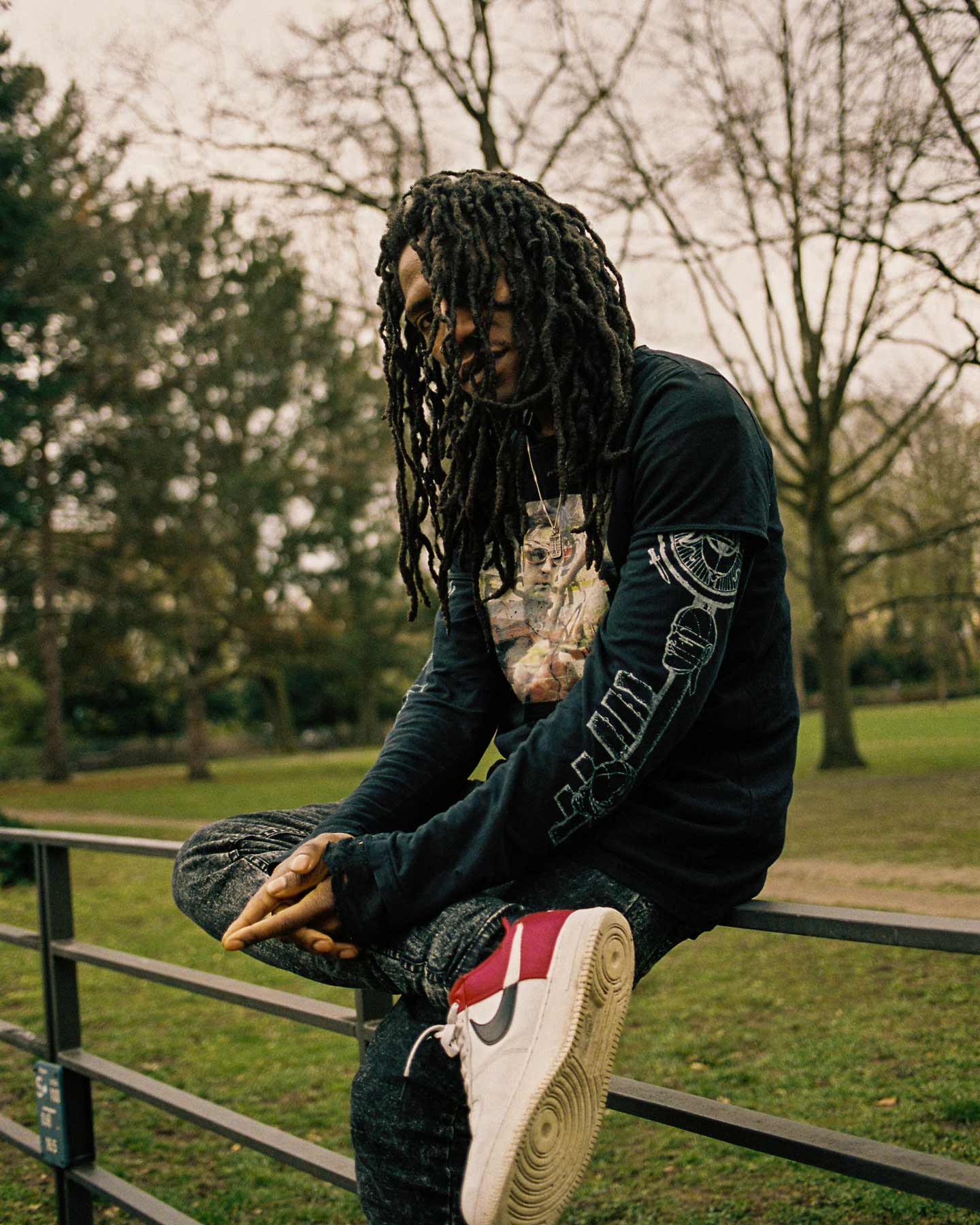
»My biggest concerns are environmentalism and climate change. Any other concept I think about doesn’t matter if the world’s gone to shit.«
Paul Sundheim:
Your songs are critical of society in an artsy way. What are your major concerns in modern society at the moment?
Red Music:
My biggest concerns are environmentalism and climate change. Any other concept I can think about doesn’t matter if the world is gone to shit. Like racism for example, who cares about racism, if you gotta kill a man with a broken selfie stick over a loaf of bread. So, I guess that’s my biggest one, that’s why I’ve been vegan for seven years now.
Obviously, I have also other concerns like the deliberation of Africa and South America and also capitalism and what it has brought upon us. Those are my main issues. I have some songs about climate change that I throw in there. A lot is also about this kind of zoo that we live in, this matrix of repetition, repetition, repetition with no real end in sight.


»It doesn’t matter how big your cage is, it’s still a cage.«
Paul Sundheim:
It’s funny that you mention that. You have a new song coming up which is called “Zoo,” I had the pleasure of listening to it already. Doesn’t this song deal with exactly the issues you were just pointing out?
Red Music:
Yeah, you’re right! That is what I was referring to, “Zoo” is really about that. It doesn’t matter how big your cage is, it’s still a cage, even if it’s the whole world.
Paul Sundheim:
As the world — including the USA — tend to socially and politically divide itself further and further, where do you see hope, especially with the current change going on in the States?
Red Music (laughing):
There is none! Just kidding, there is always hope. If there wasn’t hope, why even continuing, right? I don’t know, man. The problem with it is that you always gonna see new things, new ideas, new people coming up talking about change.
I remember, sometime before Trump, I was in South Africa and I got this tattoo of Bernie Sanders because I remember when he was on, I thought he is the goat, he’s the best, I’ve never seen a politician like this. And then you realize what you are up against, you realize the system that you are up against, you realize that they never let him become president. They tell us that change is slow and that it’s always a process, but what happens when you have no time for that process? What happens if you only got a year to live and they tell you to wait because change takes a long time?
I don’t know, I’m kind of leaning on the fence towards something cataclysmic that has to happen because they don’t seem to be getting the message. You should change the situation until it’s too late. Statistically, you can only oppress, so long until it snaps, you can only dump so much plastic into your ocean until there’s no more fish, you can only burn so much fossil fuels until there aren’t anymore. And then, if you don’t have an exit strategy, you’re fucked.
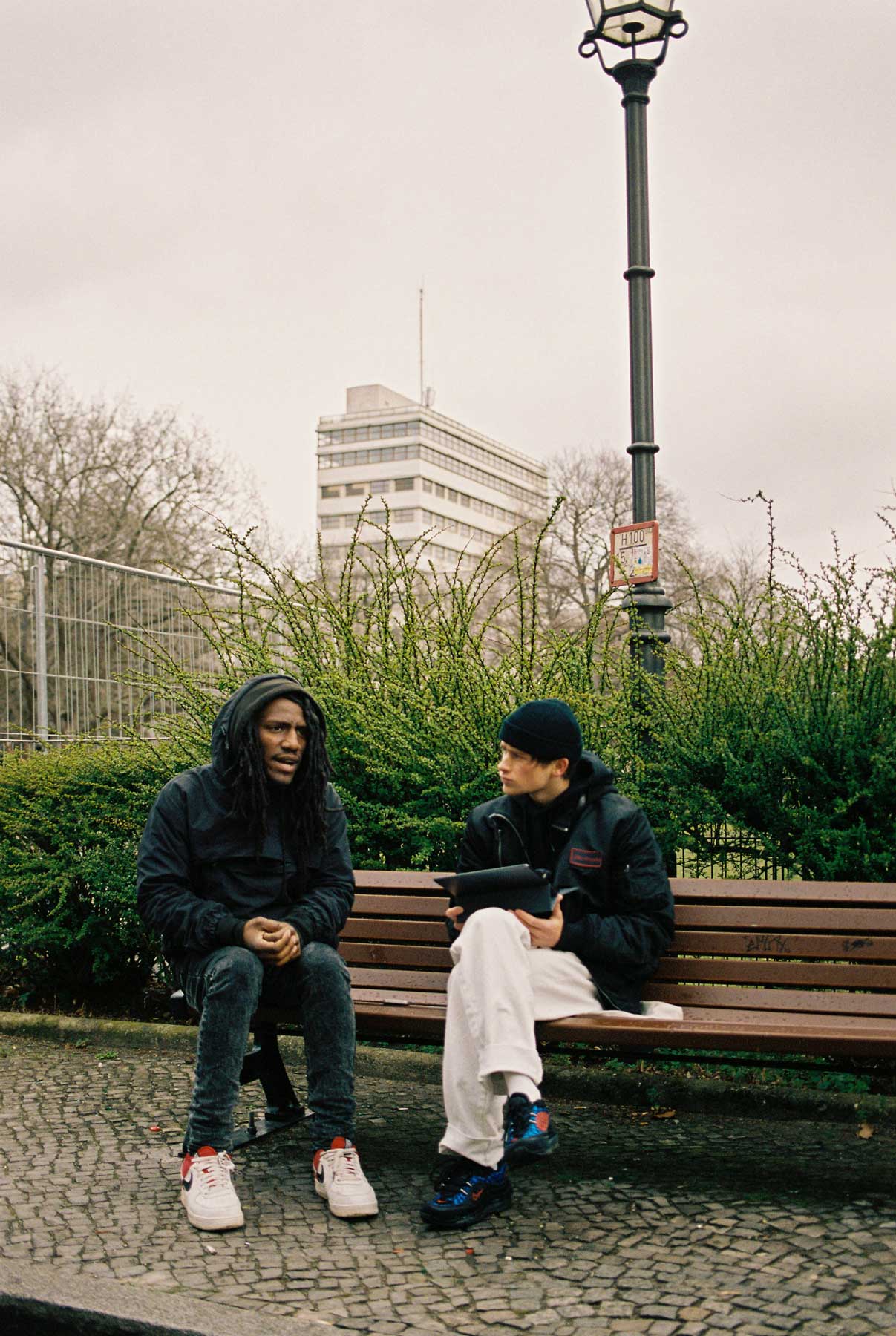
»Isn’t that crazy that now you can’t stay with a girl for like two weeks because you’re always attacked by ads on Instagram or other people’s status?«
Paul Sundheim:
In your song “concentration” you deal with topics like loneliness and relationships. For me, lines like “Lonely Woolf but never lone” and “best step far away, best self-pullulate” really stuck out. Do you feel that in nowadays society relationships become more superficial and people don’t bond emotionally with each other like they used to?
Red Music:
Yeah! That’s totally what that song is about. It’s about you getting desensitized. Isn’t that crazy, how like couples stayed together for sixty years, they might have not been perfect but accepted that and stayed with each other for sixty years, but now you can’t stay with a girl for like two weeks because you’re always attacked by ads on Instagram or other people’s status? That whole constant attack on your psyche and on your concentration is so intense that you become numb to it. And by the time someone tries to get some real life out of you, you kinda just spill it all out. People forgot how to just fully be there in the moment and tune everything off and appreciate and enjoy the presence of the other person because they are at 9,000 other places. And because they are at 9,000 places, they are nowhere. That’s also who I present in the video, I am not really present anymore, I am just this shell of a human being.
»When I talk about sins, I am also talking about temptation, feeling guilty and bad for myself.«
Paul Sundheim:
In the video of the song “Concentration,” you use a lot of religious symbols like the black Jesus. What do you wanna express with those symbols?
Red Music:
There’s a bottle in the video that I am drinking the whole time, it’s written “pity” on it, so I am drinking pity throughout the whole thing. With each scene I am going more into my sub-conscience, so when we arrive at this black Jesus scene, where I say, “Came to the city to take all your sins,” I was actually referring to Berlin at that time. When I talk about sins, I am also talking about temptation, feeling guilty for myself, feeling bad for myself, this victimization. And instead of addressing it, I’m like “Give me all your sins, give me all your trauma, ‘cause I am already fucked up anyways”. In the video, I am their Jesus, the one who they can throw all the trauma on, and I will just keep it. That’s what I meant with showing Jesus in the clip, he died for your sins — and I am dying for the sins of my people and the people before me.
Paul Sundheim:
That’s an interesting point. I feel like, often people in nowadays society are sinners but don’t want to be sinners, and they need that person, that Jesus, who they can throw all their sins on — because they want to clean themselves.
Red Music:
Exactly, and they will give you the sins and ask ten minutes later: “Why are you so fucked up?” And you respond: “I just took the weight of the world and you are asking me why I can’t adapt to the world?” That kind of hypocrisy, this Double-Jesus, is what I also tried to reflect in my video.

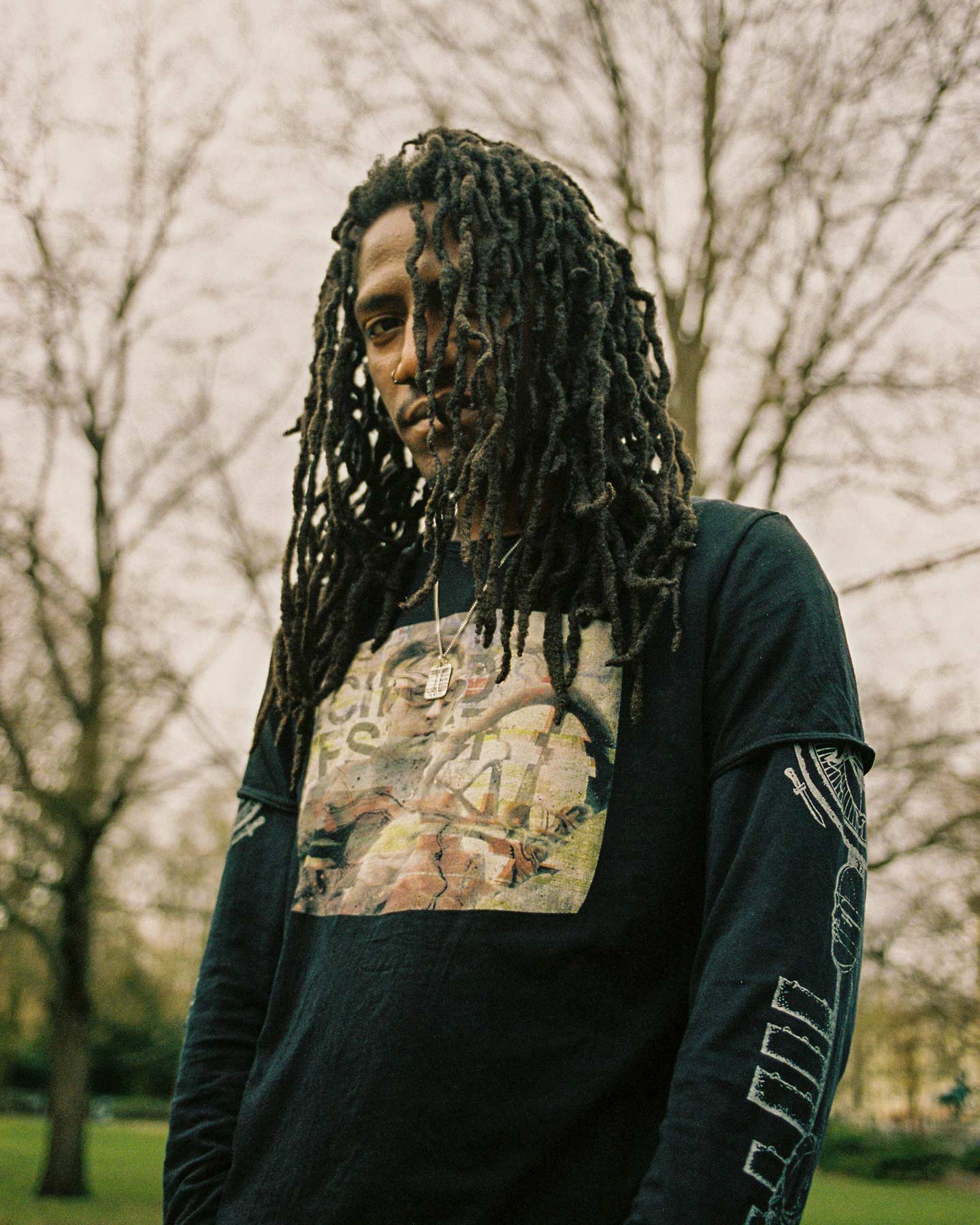
»I don’t think that masculinity is a negative thing — unless it’s toxic masculinity. The patriarchy has destroyed the world ten times over.«
Paul Sundheim:
Another topic that seems very important to you is the construct of masculinity. What does the term masculinity mean to you and why is it important to you to talk about it?
Red Music:
It’s important because I have a son. I don’t think that masculinity is a negative thing — unless it’s toxic masculinity. The patriarchy has destroyed the world ten times over. I believe that there is a balance, a Yin and a Yang, feminine energy and masculine energy, and I am trying to define for myself what it is. Especially in the hip-hop community, they are homophobic as hell and just super toxic. When I used to listen to the oldest Three 6 Mafia songs, they were talking about beating girls and pimpin’ them, and I always thought that it’s so wrong and fucked up.
So, what I am trying to do with my music is to provide that same flow but use it in an uplifting way. There is this one line that I have in a song — which is not out yet — where I say that I’m a little bit feminine and people are unfamiliar and be like “I don’t like this; he’s dressing like he’s gay. But he’s not gay and I don’t like that because it makes me feel uncomfortable with myself.” I was always a person who goes after that. When I became sure of myself, God himself couldn’t tell me that this wasn’t the way. Throughout my life, growing up in the south, I was kind of insecure about myself, but when I came to Berlin, I was like “Fuck that shit! Try me! I’ll make out with a dude right now, just to fucking piss you off.”
Paul Sundheim:
Especially the next generation longs for more role models who are just themselves, artists who are not homophobic in their lyrics and shout out that it is cool and important to support equality and feminism…
Red Music:
I mean, that’s why I’m doing it. For my son. So, when he’s our age, he can say: “It doesn’t matter if my dad won twenty Grammys, he died and there was never a song where he wasn’t himself or stood up for his values.”
»I was always at the right place but during the wrong time.«
Paul Sundheim:
You have a new EP coming up, its track “Hourglass” will be the first single to be released. I love the mixture of the vibey beat in combination with unexpected flow changes and the thought-provoking lyrics. Is that something fans can expect from your entire EP?
Red Music:
I appreciate it, man! And yeah, always! The EP is called “Right Place, Wrong Time” because I feel like numerous times in my life, not just in mine but in a lot of people’s lives, they’ve been at the right place, but they weren’t at the right time in their head. For example, I had meetings with P. Diddy, I was chilling with him, but I wasn’t where I am today. I was just a kid and wasn’t there mentally. Now people come to me and say, “You had one chance, one opportunity!” But that’s not true. Sometimes it’s not really a chance because you simply aren’t at the point of your life where you could realize that this is a chance. And that’s what I felt like.
I was always at the right place but during the wrong time. This paradox of life. And this paradox is like my main thing, in all of Red Music. That’s what I am trying to do, things you don’t expect. You just gotta turn it upside-down sometimes.
Paul Sundheim:
That’s a message to keep! Thank you very much for the Interview.
Red Music:
Thank you, brother. It’s been a pleasure!
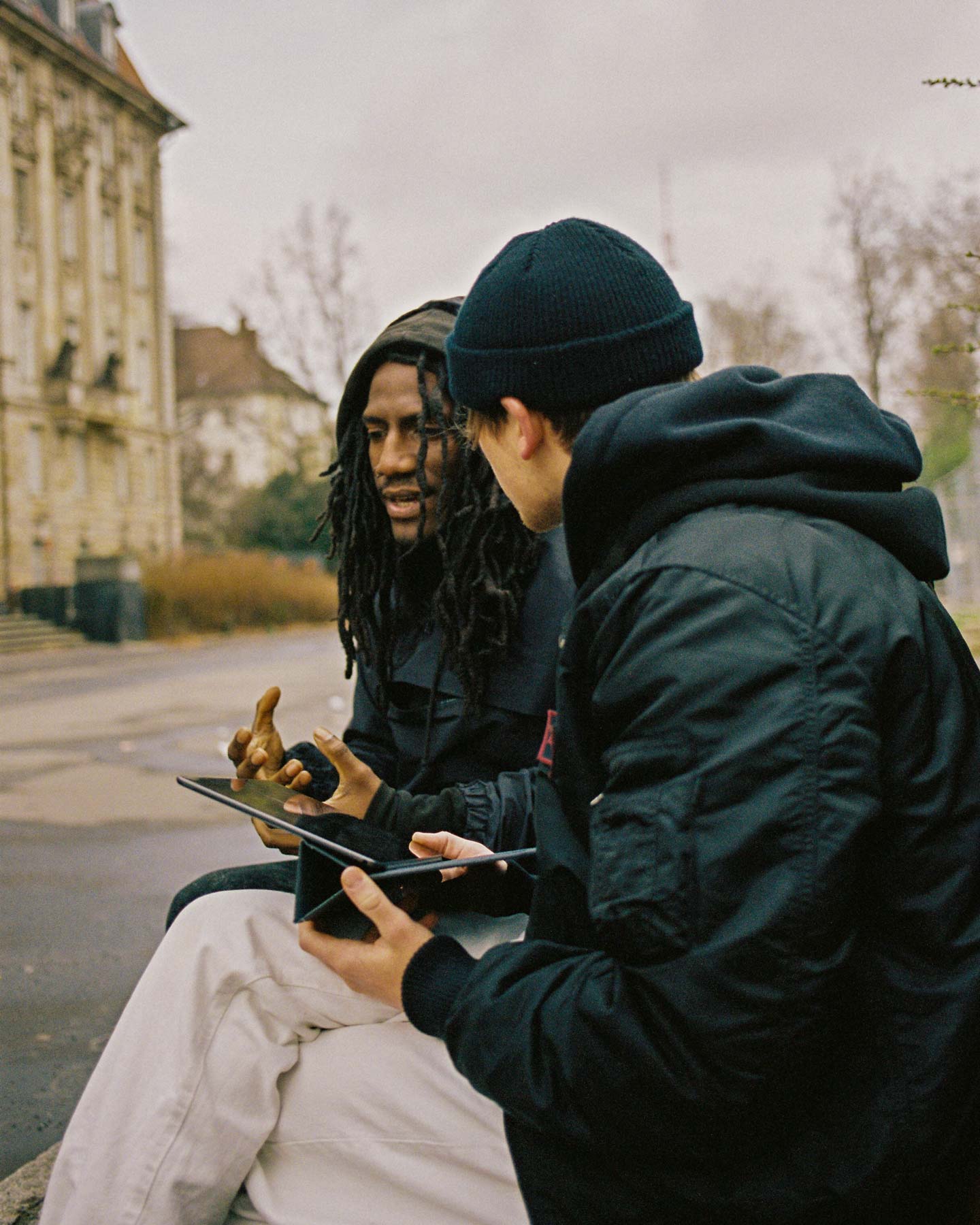
Note: All participants in the production were immediately previously tested for SARS-CoV-19.
#redmusic #rightplacewrongtime #bishopbledsoe #paulsundheim #nisalps #mypmagazine
More about Red Music:
Interview & text by Paul Sundheim:
Photography by Nis Alps:




